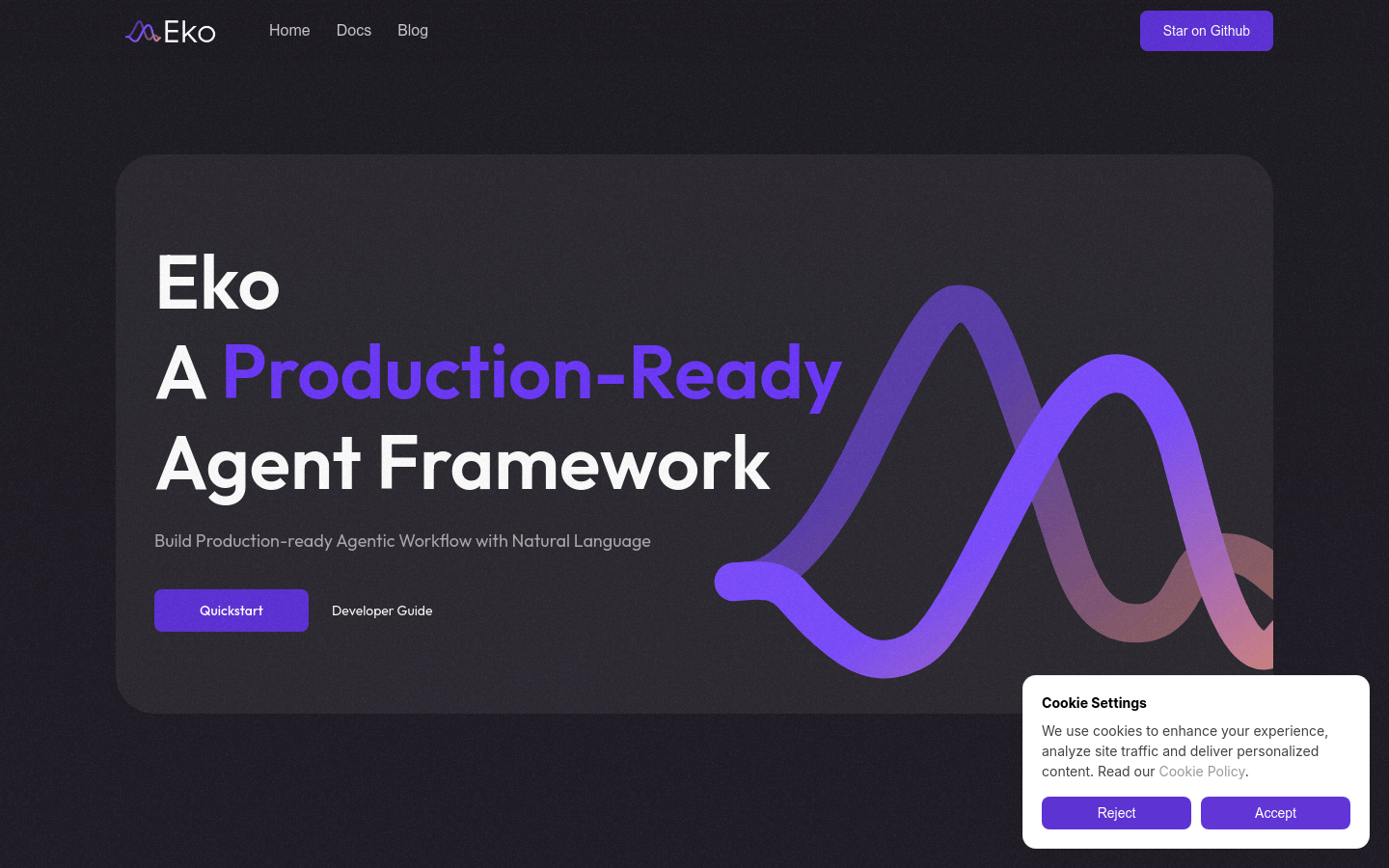

Eko
Overview :
Eko is a production-grade intelligent agent framework designed for developers. It allows them to easily construct agent-based workflows through natural language and coding logic. Eko's key advantages include efficient task decomposition capabilities, robust tool support, and flexible customization options. It aims to help developers quickly implement complex automated tasks, thereby enhancing development efficiency. Developed by the FellouAI team, Eko is currently open-source and supports various platforms, including browsers and desktop environments. The exact pricing has not been explicitly disclosed, but given its open-source nature, it may be available for free to developers, although some advanced features or customization services might require payment.
Target Users :
Eko is primarily aimed at developers, particularly those who need to build automated workflows, develop intelligent agent applications, or undertake complex task decomposition. It is suitable for tech professionals who require high flexibility and customization, enabling them to quickly transform ideas into products while reducing development costs and time.
Use Cases
Browser Extension: Stock Analysis - Real-time analysis and display of stock data through a browser extension.
Desktop Application: Large File Cleanup - Assists users in quickly scanning and cleaning up large files on their computers to free up storage space.
Marketing Blog Creation and Publishing: Analyzes competitors based on project documentation and writes and publishes marketing blogs.
Features
Supports the use of mixed natural language and programming language to design agent workflows, enabling the construction of anything from simple commands to complex processes.
Provides a rich set of built-in tools, such as web content extraction, command execution, and file export, facilitating quick integration for developers.
Allows developers to customize tools to further extend the framework's functionality.
Employs hierarchical planning techniques that separate offline planning from execution, ensuring the reusability and modifiability of task plans.
Supports a variety of large language models (LLMs), such as ChatGPT and Claude 3.5, allowing developers to switch flexibly.
How to Use
1. Visit the official Eko documentation (https://eko.fellou.ai/docs/) to understand the basic concepts and usage of the framework.
2. Choose the appropriate language model based on your needs (e.g., Claude 3.5), and initialize an instance of Eko.
3. Describe tasks in natural language, such as 'Based on the Eko README, research competitors, write, and publish a blog,' to generate a workflow.
4. Modify nodes in the workflow as needed, such as adding specific URLs or adjusting tool parameters.
5. Execute the workflow, observe the results of task execution, and make adjustments or optimizations as necessary.
Featured AI Tools

Pseudoeditor
PseudoEditor is a free online pseudocode editor. It features syntax highlighting and auto-completion, making it easier for you to write pseudocode. You can also use our pseudocode compiler feature to test your code. No download is required, start using it immediately.
Development & Tools
3.8M

Coze
Coze is a next-generation AI chatbot building platform that enables the rapid creation, debugging, and optimization of AI chatbot applications. Users can quickly build bots without writing code and deploy them across multiple platforms. Coze also offers a rich set of plugins that can extend the capabilities of bots, allowing them to interact with data, turn ideas into bot skills, equip bots with long-term memory, and enable bots to initiate conversations.
Development & Tools
3.8M

















